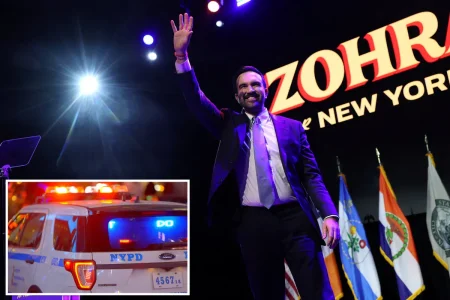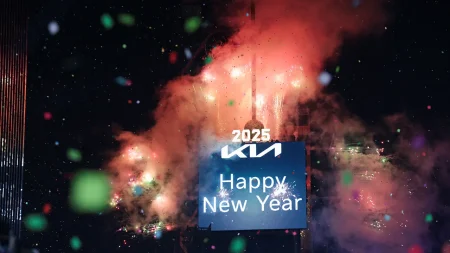America’s Free Speech Crossroads: How the US Joins Global Trend of Speech Restrictions
In a troubling shift that has alarmed constitutional scholars and civil liberties advocates alike, the United States appears to be gradually abandoning its exceptional position as the world’s foremost defender of free expression. This evolution, which has accelerated in recent years, marks a significant departure from America’s foundational commitment to robust protections for speech and expression—principles that have long distinguished the U.S. from nations with more restrictive approaches. As political polarization deepens and digital communication transforms public discourse, America finds itself increasingly aligned with countries where leaders have historically attempted to control, limit, or silence speech they find threatening or objectionable.
The Eroding American Exception
The United States has traditionally stood apart from other democracies in its expansive interpretation of free speech rights. While European nations implemented hate speech laws and many authoritarian regimes openly censored dissent, America’s First Amendment created an exceptional legal framework that protected even deeply offensive or controversial expression. Supreme Court decisions spanning decades reinforced this exceptional stance, from Brandenburg v. Ohio’s protection of abstract advocacy of violence to Snyder v. Phelps’s defense of deeply offensive protests. This American exception wasn’t merely legal doctrine but a cultural ethos—the belief that the remedy for troubling speech was more speech, not suppression.
However, this distinctive American approach has begun showing significant signs of stress. Recent years have witnessed growing calls from across the political spectrum to restrict various forms of expression. From the political right come demands to limit discussions of race, gender, and sexuality in educational settings, with numerous states enacting legislation restricting how teachers can address these topics. From the left emerge arguments for expanding the definition of harmful speech to include microaggressions and certain forms of political expression deemed harmful to marginalized communities. Both impulses—though originating from different ideological positions—share a crucial common thread: a diminished faith in the traditional American belief that open discourse, however uncomfortable, serves the greater good. These developments reflect a deeper shift in how Americans conceptualize the balance between free expression and other social values like equality, safety, and dignity.
Digital Platforms and the New Speech Battlegrounds
The digital revolution has fundamentally transformed the speech landscape, creating unprecedented challenges for America’s traditional free expression framework. Social media platforms now function as the primary public forums for political discourse, yet these spaces operate under complex content moderation systems that bear little resemblance to traditional First Amendment jurisprudence. When major platforms remove certain voices or restrict particular content—whether at their own discretion or under government pressure—the practical impact on public discourse can be profound, regardless of the formal legal protections that remain in place. This dynamic has created a troubling situation where government officials increasingly pressure private companies to restrict speech that would be constitutionally protected from direct government censorship.
This blurring of lines between state action and private content decisions represents a significant evolution in how speech restrictions function in contemporary America. The Surgeon General’s office has issued advisories urging platforms to combat “misinformation,” while members of Congress have explicitly threatened regulatory consequences if platforms fail to remove certain content. These pressures create what legal scholars call a “censorship by proxy” system, where government officials achieve indirectly what constitutional constraints prevent them from doing directly. Meanwhile, both major political parties have embraced different forms of this approach—Republicans in states like Florida and Texas have passed laws attempting to regulate how platforms moderate content, while Democratic officials have advocated for greater platform responsibility in limiting “harmful” speech. This bipartisan embrace of speech control mechanisms, albeit targeting different types of expression, signals a fundamental shift away from America’s traditional hands-off approach to regulating discourse.
Global Convergence on Speech Restriction
The American move toward greater speech regulation reflects a troubling convergence with international norms that have historically been more restrictive. Countries from Germany to Singapore have long maintained that certain forms of expression must be limited to protect social cohesion, prevent harm to vulnerable groups, or maintain public order. The American shift doesn’t mean the U.S. has suddenly adopted the speech restrictions of authoritarian regimes, but rather that the philosophical gap between American and foreign approaches is narrowing. This convergence is particularly evident in how governments worldwide, including the U.S., have responded to the challenges of online disinformation, hate speech, and extremist content.
The COVID-19 pandemic accelerated this trend as governments globally, including U.S. agencies, claimed authority to combat “misinformation” about public health matters. The Biden administration’s creation of a short-lived Disinformation Governance Board within the Department of Homeland Security, though quickly disbanded after public backlash, represented a striking example of how American institutions are increasingly willing to adopt oversight mechanisms for speech that would have been unthinkable in previous eras. Similar efforts have emerged around election-related speech, with government agencies increasingly positioning themselves as arbiters of accurate information. This approach mirrors long-standing practices in countries like France, which restricts certain types of election-related speech, or Germany, which strictly regulates public discourse about historical events. While significant differences remain between American speech regulation and more restrictive regimes, the direction of movement is unmistakably toward greater convergence with global norms that prioritize managed discourse over unfettered expression.
The University Crisis and Speech Culture
Perhaps nowhere is America’s changing relationship with free expression more evident than on university campuses, historically celebrated as bastions of open inquiry and robust debate. Recent years have witnessed profound challenges to this tradition, with high-profile controversies at institutions from Yale to Stanford revealing deep divisions over what speech should be permitted in academic settings. Campus speaker disinvitations, restrictive speech codes, and calls for sanctions against professors who express controversial views have become increasingly common features of American academic life. These developments reflect a significant cultural shift away from the belief that universities should be places where all ideas, however controversial, can be openly discussed and debated.
This transformation of academic speech culture carries particular significance because universities have traditionally served as training grounds for democratic citizenship and incubators for future leaders. When the nation’s elite educational institutions signal that certain viewpoints are beyond the boundaries of acceptable discourse, these norms eventually permeate broader society. The recent campus protests surrounding the Israel-Hamas conflict vividly illustrate these tensions, with university administrators struggling to balance free expression principles against demands to restrict speech deemed harmful or offensive to various campus communities. These challenges aren’t unique to America—universities worldwide face similar pressures—but they represent a particularly significant shift in a country whose academic institutions have historically embraced a more absolutist approach to intellectual freedom. The willingness of university administrations to accommodate demands for speech restrictions signals a profound cultural shift that extends far beyond campus boundaries.
Preserving America’s Free Speech Tradition in a Changing World
Despite these concerning trends, America’s exceptional free speech tradition retains significant institutional and cultural strength. The Supreme Court continues to uphold robust First Amendment protections in most contexts, and public resistance to overt censorship remains strong across ideological lines. However, preserving America’s distinctive approach to free expression in the digital age will require renewed commitment from citizens, institutions, and leaders who recognize the fundamental value of protecting even deeply controversial speech.
The path forward demands nuanced approaches that acknowledge legitimate concerns about harmful speech while rejecting the increasingly popular notion that silencing expression is the primary solution to social conflict. It requires recognizing that while private platforms have legal rights to moderate content, a healthy democracy benefits when these powerful entities err on the side of permitting a wide range of expression. Most importantly, it demands that Americans across the political spectrum recognize that embracing speech restrictions to silence their opponents inevitably creates tools that will eventually be turned against their own expression. As America navigates this crucial crossroads, the choices made today about speech regulation will shape not only the nation’s constitutional future but its very identity in a world where the impulse to control expression remains a powerful temptation for leaders everywhere. The exceptional American approach to free speech, though imperfect, represents one of the nation’s most valuable contributions to global democracy—a principle worth defending even as it faces unprecedented challenges in our digital age.








